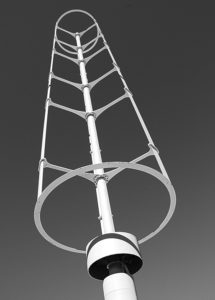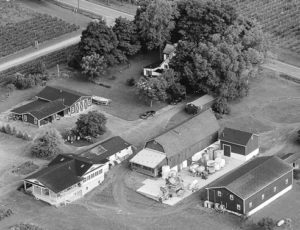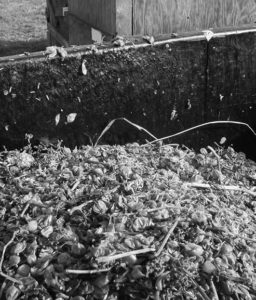From Bats to Biodiesel, Hunt Country Vineyards Saves Energy & Dollars
Priorities and Strategies
As sixth-generation stewards of their Branchport, NY land, the Hunt family is invested in doing what it takes to care for their land. Their interest in stewardship and sustainability go hand-in-hand with their interest in saving money and energy. “We want to still operate when the power goes out,” says Art Hunt. Many of their strategies result in net energy savings, even those that seemingly have little to do with energy. For example, encouraging bats to live on the farm helps to keep the insect population down, which means that the Hunts spend less money, time, and fuel on pesticide application. When they do spray, their tractors are powered with biodiesel, thanks to used cooking oil from local restaurants. The Hunts have paid close attention to energy conservation throughout their facilities expansion, especially insulation, and are considering the use of thermal pumps to heat and cool their buildings. Further reductions in electricity costs will be achieved with the use of renewable energy technologies: a vertical wind turbine was installed in the summer of 2009.
Wind Energy

The new turbine generates up to 1.2 kW of electricity which is enough to meet one quarter of the annual energy needs of the average American home. Photo by Mariah Power
Vertical wind turbines are designed to work at slower wind speeds than propeller turbines. The Hunts worked with Nevada company Mariah Power to install the turbine as a demonstrator. The turbine generates up to 1.2 kW of electricity – about 2000 kW hours per year – which is enough to meet one quarter of the annual energy needs of the average American home. The farm’s electricity usage is about 15 kW per hour, so they aren’t expecting a significant impact on their electric bill from the 1.2 kW turbine. However, if this turbine meets its rated capacity and productivity, it will be replaced with a higher-capacity turbine. The turbine will be connected to the farm’s existing circuitry and the electricity will be used to offset the power purchased from the utility company. Hunt Country is undertaking this venture without an external source of funding because the New York State Energy Research and Development Authority (NYSERDA) has not yet approved Mariah Power turbines; the cost to purchase and install the turbine is $6000. NYSERDA approval of Mariah Power’s turbines is contingent on the company’s submission of the results of government tests, which were favorable.
Opportunities for Improvement
Determining how much money the Hunts have saved through their efforts is difficult because their energy usage has changed dramatically over the years, but one example illustrates the dramatic difference that smart energy use can make. As the winery’s facilities expanded, their tanks were moved outside, where they needed to be heated in the winter and cooled in the summer. The tanks got a new building in 2008, and simply creating a more controlled environment saved the Hunts about $1000-$2000 in heating costs over the winter – about 10% of their costs the previous winter. Those savings aren’t enough to satisfy Art, who believes that they could save $8000 with better planning. “We use way too much electricity and propane right now,” he says, because wine tanks and buildings often require heating and cooling at different times. As part of the farm’s energy strategy the Hunts are investigating the possibility of installing heat pumps, which transfer heat from the ground or the air to where it is needed (or vice versa) instead of generating more heat.

As sixth-generation stewards of their farm, the Hunt family is invested in sustaining the farm for the future. Photo by Art Hunt
Even the types of grapes grown in the vineyards can affect Hunt Country’s energy use. The Hunts are growing more hybrids, a strategy that helps to save energy and work because the hybrids are more dependable, cold hardy, and disease resistant. Growing hybrids also provides greater assurance of a successful harvest, because European varietals aren’t as cold hardy. Composted pomace left over from pressing grapes is another tool the Hunts use to return nutrients and organic matter to their soil.
Learn more about Hunt Country Vineyards.
Learn more about Mariah Power.


